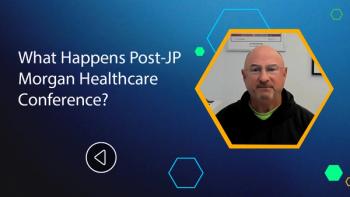
How LLM Energy Consumption Compares to Other Industries
In this Pharmaceutical Executive video interview, Edoardo Madussi, Head of Business Development, Intelligencia AI compares the energy consumption of large language models to other technologies or industries.
In this interview, Edoardo Madussi, Head of Business Development, Intelligencia AI discusses the potential impact of AI-driven drug discovery platforms like DeepSeek and Qwen, highlighting their democratizing potential while also acknowledging challenges related to data quality and validation. The conversation explores the potential disruptions to current R&D practices, including the acceleration of drug discovery and the optimization of manufacturing and supply chains.
The discussion also addresses the potential risks associated with relying heavily on open-access AI models, including data security, intellectual property concerns, and the potential for biases in underlying datasets. Finally, the interview touches upon the environmental impact of AI, emphasizing the energy consumption of large language models while acknowledging the potential for AI to improve efficiency and reduce the environmental footprint of drug development.
How does the energy consumption of large language models compare to other technologies or industries?
I think there is no comparison. If you think about the recent news of DeepSeek launching their model, and the all the semiconductor companies that have made a fortune in the last years in generating these very powerful chips, this is probably one of the most highlighted limitations of the evolution of AI, right? The evolution of AI is not because we don't have the science to bring it forward. It's because we don't have the energy, power — we don't have the actual resources, from an energy standpoint, to develop them further.
The limits of AI currently are almost set by the physical limits of our computing power. And so revelations like the ones from DeepSeek, where they may be able to cut down the computing power from an energy perspective, so clearly mark an advancement in the AI innovation. But to your question, no, I don't think there is anything else that compares to this when it comes to really the energy. Maybe Bitcoin, would a comparable environment or a comparable industry where, again, the limitations on the on the adoption of the innovation are set by the physical limits of how much energy we need to have for them to advance.
Newsletter
Lead with insight with the Pharmaceutical Executive newsletter, featuring strategic analysis, leadership trends, and market intelligence for biopharma decision-makers.




